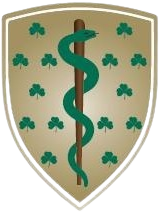GERD vs. Heartburn: Understanding Acid Reflux and How to Manage It
Almost everyone has experienced heartburn at some point—that uncomfortable burning sensation in the chest after a spicy meal or overeating. But when does occasional heartburn become a more serious condition like GERD (Gastroesophageal Reflux Disease)? Understanding the differences between the two, their symptoms, and how to manage them can prevent long-term complications and improve your quality of life.
In this article, we’ll explore:
The key differences between GERD and heartburn
Common symptoms and triggers
Effective lifestyle and medical treatments
When to see a doctor
Long-term risks of untreated GERD
Heartburn vs. GERD: What’s the Difference?
1. Occasional Heartburn
Definition: A burning discomfort in the chest, often after eating, caused by stomach acid flowing back into the esophagus.
Frequency: Occurs occasionally (once a week or less).
Triggers: Spicy foods, caffeine, alcohol, large meals, lying down after eating.
Relief: Usually resolves with antacids or lifestyle adjustments.
2. GERD (Chronic Acid Reflux)
Definition: A chronic condition where stomach acid frequently flows back into the esophagus, causing irritation and damage over time.
Frequency: Symptoms occur twice a week or more.
Complications: Can lead to esophagitis, Barrett’s esophagus, and even esophageal cancer if untreated.
Requires: Long-term management with diet, lifestyle changes, and sometimes medication or surgery.
Symptoms: How to Tell If It’s GERD or Just Heartburn
Common Heartburn Symptoms
✔ Burning sensation in the chest (behind the breastbone)
✔ Sour or bitter taste in the mouth
✔ Mild discomfort that goes away with antacids
GERD Symptoms (More Severe & Frequent)
✔ Frequent heartburn (2+ times per week)
✔ Regurgitation (acid or food coming back up)
✔ Chronic cough or hoarseness (due to throat irritation)
✔ Difficulty swallowing (feeling like food is stuck)
✔ Asthma-like symptoms (wheezing, especially at night)
Note: Some people with GERD experience “silent reflux” (LPR—Laryngopharyngeal Reflux), where they don’t have heartburn but suffer from throat irritation, voice changes, or a persistent cough.
What Causes Acid Reflux?
The lower esophageal sphincter (LES), a muscle at the bottom of the esophagus, normally closes to keep stomach acid from rising. When it weakens or relaxes abnormally, acid flows back up, causing symptoms.
Common Triggers for Heartburn & GERD
Foods: Spicy, fatty, or acidic foods (citrus, tomatoes, chocolate, coffee).
Lifestyle: Overeating, lying down after meals, smoking, alcohol.
Medical Factors: Obesity, pregnancy, hiatal hernia, certain medications (NSAIDs, blood pressure drugs).
How to Manage and Treat Acid Reflux
Lifestyle Changes (Effective for Both Heartburn & GERD)
Diet Adjustments
Avoid trigger foods (fried, spicy, citrus, caffeine, carbonated drinks).
Eat smaller, more frequent meals (large meals increase pressure on the LES).
Don’t lie down within 3 hours of eating.
Sleep Position
Elevate the head of your bed 6-8 inches (gravity helps keep acid down).
Sleep on your left side (reduces reflux compared to the right side).
Weight Management
Excess weight increases abdominal pressure, pushing acid upward.
Even losing 5-10 lbs can significantly reduce symptoms.
Other Helpful Habits
Quit smoking (weakens the LES).
Wear loose-fitting clothes (tight waistbands increase pressure).
Medical Treatments
Antacids (Tums, Rolaids) – Quick relief for occasional heartburn.
H2 Blockers (Pepcid, Zantac) – Reduce acid production for a few hours.
PPIs (Proton Pump Inhibitors – Nexium, Prilosec) – Stronger acid suppression, used for GERD.
Surgery (Fundoplication) – For severe GERD cases where medication isn’t enough.
When to See a Doctor
Seek medical attention if you experience:
Frequent heartburn (more than twice a week).
Difficulty swallowing or persistent pain.
Unexplained weight loss.
Vomiting blood or black stools (signs of bleeding).
Symptoms not relieved by OTC meds.
Warning: Long-term untreated GERD can lead to:
Esophagitis (inflammation and ulcers).
Strictures (narrowing of the esophagus).
Barrett’s Esophagus (precancerous changes).
Esophageal cancer (rare but serious).
Final Thoughts
While occasional heartburn is common and manageable with lifestyle tweaks, GERD is a chronic condition requiring long-term care. If you experience frequent reflux symptoms, don’t ignore them—early intervention can prevent serious complications.
Take control of your digestive health by:
✔ Identifying and avoiding triggers
✔ Making key lifestyle changes
✔ Seeking medical advice if symptoms persist
By understanding the difference between heartburn and GERD, you can take the right steps to protect your esophagus and enjoy a more comfortable life.





